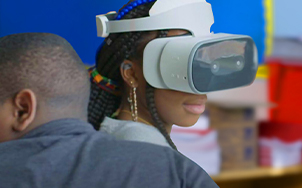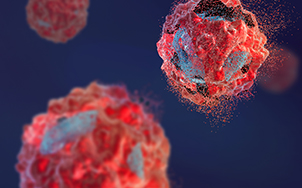3 final frontiers university researchers are about to cross
Penicillin and insulin. MRIs and pacemakers. Computers, search engines and the World Wide Web. All of the inventions we cannot live without have come from university research.
Part of the reason is brainpower. Great minds concentrate in more significant numbers at institutions like Stanford University and the National University of Singapore —two of the world’s hottest beds of innovation.Source
But the other reason? Computing power. Great invention comes from universities because the technology that researchers rely on allows them to process massive troves of data at mind-blowing speed.
As the world’s leading supercomputer provider, we furnish that technology. The world’s most renowned computing centres, including the Faculty of Arts & Sciences Research Computing (FASRC) at Harvard; the Vienna Scientific Cluster; and the Barcelona Supercomputing Center, run on Lenovo, powered by Intel®.Source
Researchers and their IT departments need more than computation.
- In a data-rich, time-poor world, they need to be flexible and at the forefront with their technology. Subscription-based models, like Lenovo Device-as-a-Service (DaaS) and TruScale infrastructure solutions, let them stay agile in a changing landscape.
- They need to build big datasets. Our Internet of Things (IoT) and mobility solutions, made smarter by AI, help them capture and stream millions of data points.
- They need their data to be secure, yet accessible on demand, from anywhere. Lenovo scalable storage, cloud computing and end-to-end security solutions rise to the challenge. The Intel vPro® platform supports cloud-based remote manageability that allows IT to manage fleets of devices from anywhere. It offers the built-in security features, performance and stability of Intel® architecture while aligning with a future-proof roadmap.
- They need to probe data lakes for correlations and patterns. Our Analytics & AI solutions help them uncover insights fast enough to keep research at the vanguard. The only data centre CPU with built-in AI acceleration, 3rd Gen Intel® Xeon® Scalable processors enable faster time to solution. For researchers that means faster solutions and more data analysis with less hassle.
- They need easier ways to prepare the data that trains their models. Our AI-ready workstations streamline machine learning and reduce time to insight.
- And they need to focus on their work, not our tech. Our end-to-end services ensure that IT is never their issue.
The partnership between human ingenuity and technological innovation is resulting in some pretty dazzling discoveries. Here are just a few:
Protecting world health
The Arbutus initiative at the University of Victoria is enabling new types of research projects with cloud-based AI and machine learning: from understanding how the human body interacts with artificial organs to improving the lives of people using non-prescription street drugs. We’re accelerating similar work at the University of Southampton, where Lenovo clusters give scientists the superpowers they need to conquer antibiotic resistance.
Securing the global food supply
By 2050, human beings will number 9 billion. We’re going to need to grow 60% more food if none of us is to go hungry. Pests and pathogens unleashed by extreme weather don’t make this easy. Yet, with supercomputers optimised for genomic analysis, researchers breed seeds that can withstand the threats to crop yields. Crop geneticists at the University of Delhi’s Centre for Genetic Manipulation of Crop Plants (CGMCP), for example, have bred mustard oilseeds to resist a fungus currently decimating India’s source of cooking oil and livestock feed. These and other super seeds developing in university labs today are securing tomorrow’s food supply.
Conserving precious resources
Water tables are in retreat. Soils are depleted. So, while we need to grow more, we must find ways to do so using less water and less fertiliser. Researchers are succeeding. And we’re accelerating their progress. At the Plant Phenotyping and Imaging Research Centre at the University of Saskatchewan, Lenovo’s image-acquisition and graphic processing technologies reveal exactly how plants extract nutrients from the soil. At North Carolina State University’s Center for Geospatial Analytics, Lenovo’s AI-optimised technologies help agronomists predict the best time for farmers to irrigate crops. This innovation can minimise water wastage without lowering yields.
Despite some pretty dark clouds, if we look to universities, the future looks bright.
FEATURED SOLUTIONS


















